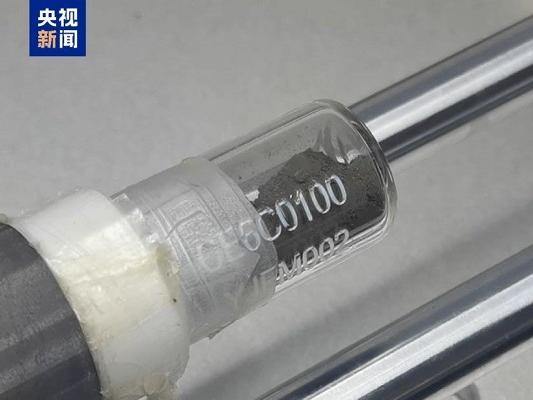Normal anxiety will improve people's reaction level, make people's thinking more agile, more focused, easier to make decisions, etc., while excessive anxiety will affect sleep and social adaptation, and make people become irritable, etc. During the pandemic outbreak, many people suffered from constant anxiety due to changes in their own conditions and working environment, which has affected their daily life. Once there is a state of anxiety that affects our daily life, we should deal with it in a timely manner and achieve self-recovery through psychological behavior adjustment.
1. Identify our anxiety:
Distinguish between normal anxiety and pathological anxiety. For example, some people are overly worried, constantly browsing some information related to the pandemic situation and looking for some data, and some people are even constantly measuring body temperature, washing hands, etc. For another example, if some people spend 40% or more energy focusing on the pandemic information than that on other information, and spend most of the day focusing on information related to the pandemic, it can be said that they have anxious personality. At this time, being alert to pathological anxiety, regulating the intake of information and changing the focus, and paying more attention to positive news can significantly reduce our anxiety.
2. Accept anxiety and cope with emotions better:
Follow-up thinking: "what are you worried about or afraid of?" The current pandemic can make anyone nervous and anxious. You should understand and accept that your status is a normal response to a particular situation, and also understand that these issues may last for a while, but the situation will gradually improve.
3. Adjust the cognition:
Anxiety is often associated with negative thoughts. During the pandemic, survival instinct brings us many catastrophic concerns and associations. At this point, we can ask ourselves: is this idea realistic? If not, what is a realistic idea? What is the evidence for and against the idea? Is there any other possibility? If so, how would these thoughts affect me? Will it help me solve the problem or will it make me more scared? If my friend were in the same situation as I am now, what would I say to him?
4. Self-protection:
You should get the information related to the pandemic properly, only pay attention to the authoritative information released by the official platforms, and do a good job in self-information protection. False information can bring secondary harm, so you should not believe, spread, or start the rumors. Front-line medical staff should especially protect their physical and mental health.
5. Mutual support among relatives and friends:
Talking out can relieve anxiety to a certain extent. If other family members are also worried, it can be a relief when everyone speaks up and finds that you are feeling the same. You can also call or send a WeChat message to the friends and relatives you care about, take the initiative to ask about their lives, share your feelings, and do what you can to help.
6. Maintain a life routine:
While on vacation, try to maintain the same routine as usual, including sleeping, eating, exercising, entertaining, and doing housework. With the necessary protection, a rich and regular life can improve our psychological immunity and give us more confidence and strength to face ever-changing and unknown risks. Medical personnel should take appropriate rest under extreme pressure, and don't get exhausted by overloaded work.
7. Take advantage of hobbies:
Think about your hobbies now or in the past. Then take some time to do the things that make you calm and happy, and of course, you can share them with your family. For example: listening to music, reading, drawing, meditation, cooking, and exercising...
8. Relaxation skills.
9. The adjustment of psychological behaviors can slowly help us overcome anxiety, but this is a gradual process. Though the effect may not be significant at first, do not deny everything. We should pay attention to our slight changes and be persistent.
10. If anxiety does not get better but affects daily life through the above adjustment methods, please do not hesitate to seek the help of a specialist immediately.
正常的焦虑会提高人的反应程度、会让人的思维变得更加敏捷、注意力更加集中、更容易作出决策等,然而过度焦虑状态,则会影响睡眠、社会适应,变得易激惹等。疫情期间,许多人员由于自身状况和工作环境的变化,出现了持续的焦虑状态,影响到了日常生活。一旦出现了影响日常生活的焦虑状态,我们要及时处理,通过心理行为调整达到自我康复的目的。
1. 我们要识别自己的焦虑情绪:
区分正常的焦虑与病理性焦虑情绪。比如说,出现过度担心,并且不断地去看和疫情相关的一些信息,寻找一些数据,甚至有的人不断地测量体温、洗手等;又比如,关注疫情方面的信息大于关注所有信息的40%以上,一天中大多数时间都在关注与疫情相关方面的信息,同时,又是容易焦虑的性格特点。这时,警惕出现病理性焦虑情绪,并调节信息的摄入和转移方向,多关注正面新闻,可以显著降低我们的焦虑情绪。
2. 允许接纳焦虑,更好地与情绪共处:
追问式思索:“自己担心或害怕的究竟是什么?”疫情当前,任何人都可能出现紧张焦虑不安的情况。要理解和接纳自己这样的状态,告诉自己这是面对特殊情境的正常反应;也要理解它们可能会持续一段时间,但程度会逐渐减轻。
3. 调整认知:
焦虑情绪往往与我们的消极想法有关。疫情之下,生存本能让我们不由自主地出现很多灾难化的担忧和联想。此时我们可以问问自己:这个想法符合现实吗?如果不符合,符合现实的想法是什么?支持和反对这个想法的证据是什么?还有其他的可能吗?如果符合现实,这些想法对我有什么影响?是帮助我解决问题还是让我变得更加害怕?如果我的朋友和我现在一样的处境,我会和他说什么?
4. 保护自我:
适当了解疫情相关信息,只关注官方平台发布的权威信息,做好自我信息防护。不实的信息也可以带来次生伤害,不信谣,不传谣,不造谣。特别是在一线的医护人员,要保护好自己身心的健康。
5. 亲友相互支持:
倾诉,可以在一定程度上缓解焦虑。如果家人也处于担忧之中,当大家都说出了自己的担心并发现是同样的心情时,也会带来释然。还可以给你记挂的亲友打个电话发条微信,主动询问他们的情况,分享你的感受,提供力所能及的帮助。
6. 保持生活规律:
虽然在休假,但尽量保持跟平时一样的规律,睡眠、进食、运动、娱乐、家务都不能缺少。在必要的防护下,丰富且规律的生活能提高我们的心理免疫力,更有信心和力量面对不断变化且未知的风险。医护人员在高强度的工作压力下要适当休息,不要超负荷地压榨自己的精力。
7. 利用兴趣爱好:
想想你现在或曾经有哪些兴趣爱好?那么就花一些时间去做这些可以让自己平静和愉悦的事情,当然还可以跟家人一起分享。比如听音乐、阅读、画画、冥想、厨艺、运动……
8. 放松技术。
9. 心理行为的调整可以慢慢帮我们克服焦虑情绪,但这是一个循序渐进的过程,刚开始可能效果不太显著,不要因此否定一切,我们要关注自己轻微的变化,要坚持下去,持之以恒。
10.如果通过以上的调整方法,焦虑情绪仍未好转并影响日常生活,请不要犹豫,立刻寻求专科医生的帮助。
(Executive Editor: Ye Ke, Wang Lin)




